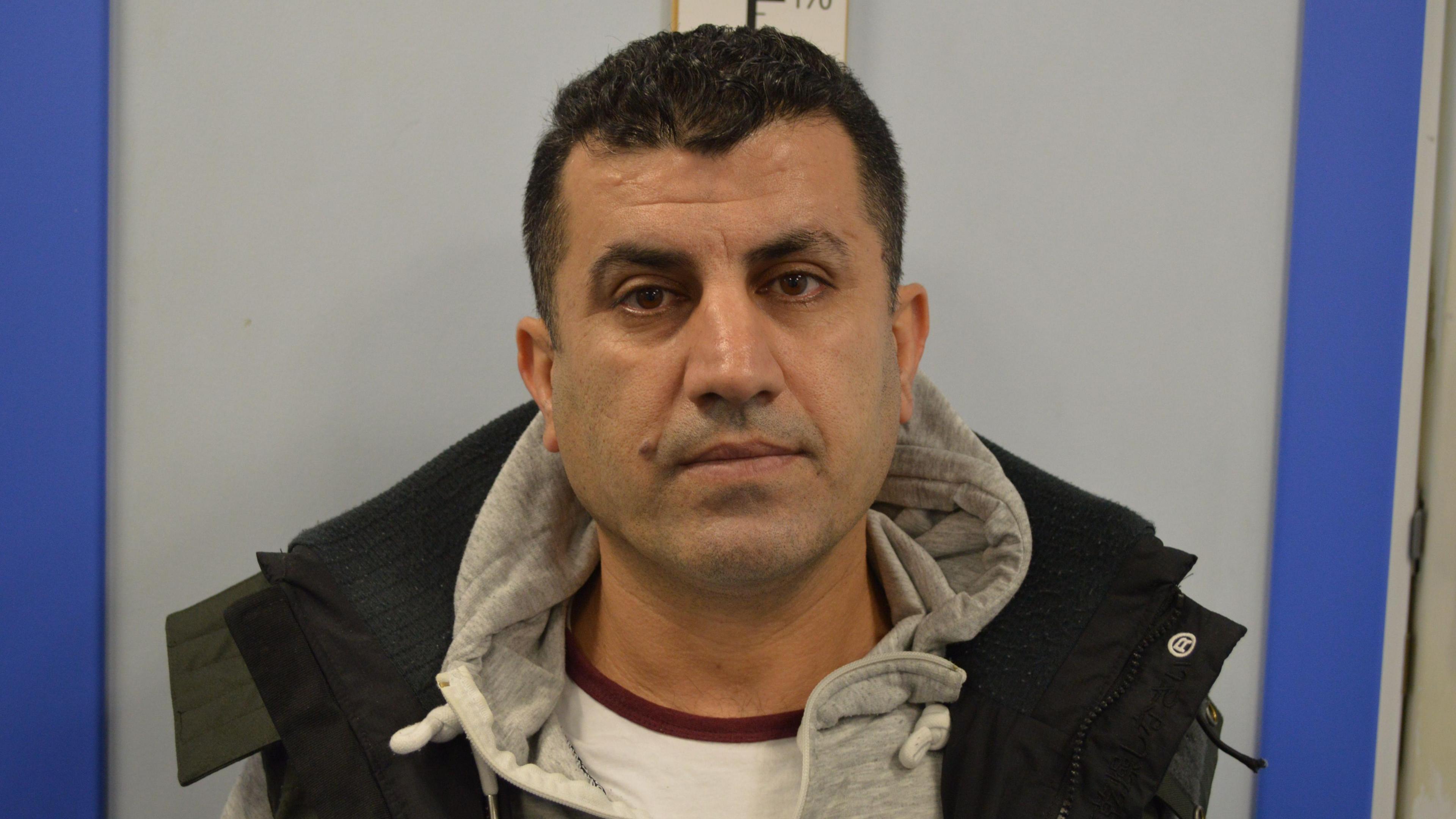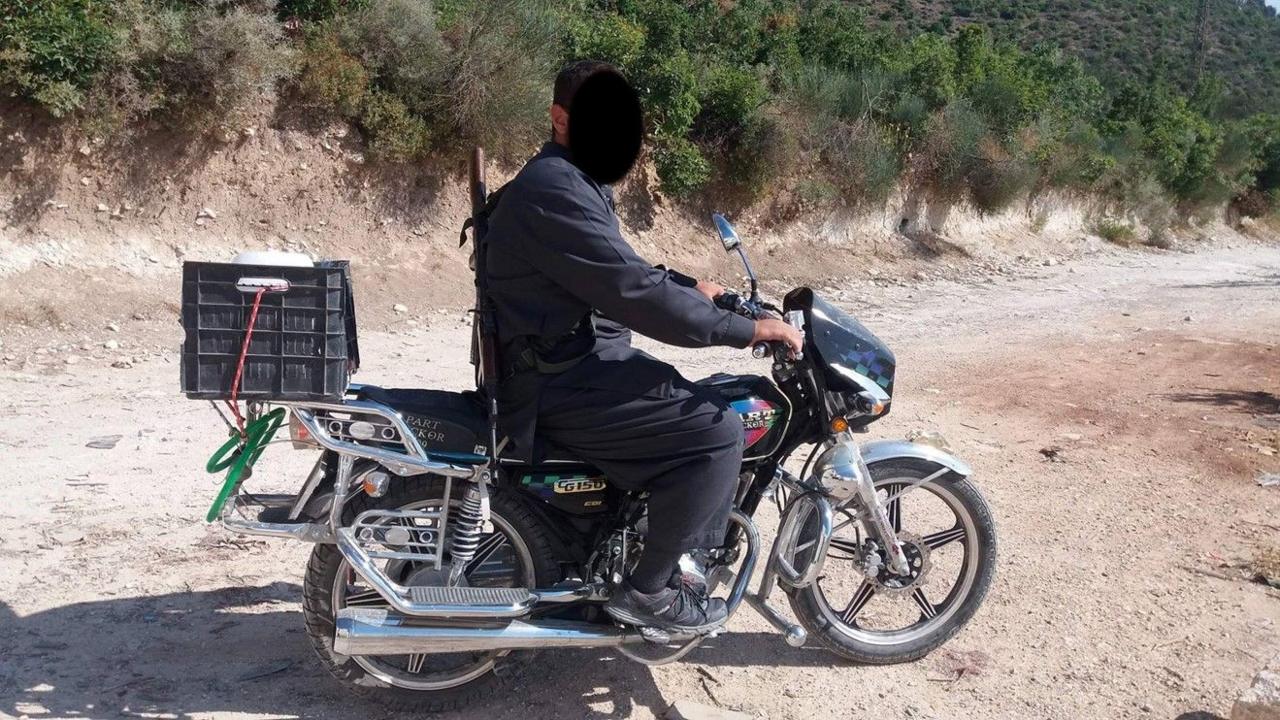Man who funded nephew's terrorism sentenced

Farhad Mohammad was arrested when he tried to board a plane from Essex to Turkey in 2018
- Published
A "misguided" father-of-two who sent US dollars to a nephew who was fighting for an Islamist terrorist group in Syria has been given a community sentence.
Restaurant worker Farhad Mohammad, 45, from Colchester, made payments totalling $350 (£270) suspecting his relative was actively involved in terrorism for the proscribed Hay'at Tahrir al-Sham (HTS) organisation, prosecutors said.
Mohammad had been arrested by counter-terrorism police when trying to board a plane to Turkey from London Stansted Airport in February 2018.
He had been found guilty of two offences under the Terrorism Act 2000 and was given a three-year community sentence at the Old Bailey in London.

Mohammad's nephew (shown in a picture previously issued by police) also asked for money to help fund transport methods in Syria, prosecutors said
Mohammad had sent the money to Idris Usman in 2017 and 2018 and prosecutors said his nephew was fighting with HTS at the time and the money would have provided two months' funding.
They said Mohammad had "suspected" that money "may" be used to fund terrorism.
Mohammad had entered not guilty pleas, but was convicted of two offences of entering into funding arrangements, following a trial at the same court in April this year.
Ibraheem Hussian, representing Mohammad, said in mitigation that the money sent was "a small amount", sent via Western Union transfer in his own name, and he had made no attempt to disguise what he was doing.
Mr Hussian said his client was married with two children, had been a man of "good character" and his period of offending had been "distinct".
'Inordinate delay'
Judge Angela Rafferty said the public expected people who committed terrorist offences to be jailed, but recognised it was an "exceptional" and "quite unusual case".
Mohammad had lived in the UK for more than 20 years, left school between the ages of 10 and 11 and had grown up in a war zone, the court heard.
Judge Rafferty added there was no evidence Mohammad had terrorist sympathies and he had not committed any offences prior to or after his conviction.
She said he had been shunned by the community after his conviction and had lost his accommodation and job as a result.
The judge said he posed a low risk to the public and another factor taken into account when handing down the community sentence was the "inordinate delay" in bringing the case to trial as it had been almost seven years since Mohammad committed the offences.
Along with the community order, the judge ordered Mohammad to undergo 30 days of rehabilitation activity, to carry out 250 hours of unpaid work and adhere to a three-month daily curfew between 21:00 and 08:00.
'Completely misguided'
The judge said Mohammad's nephew was "persistently asking members of the family for money" saying it was for food, medical treatment and to help him come home.
"It was not in dispute that he [the nephew] was in fact a terrorist fighter," Judge Rafferty told Mohammad.
"There was reasonable cause for you to suspect that your nephew was a terrorist."
The judge said his motivation for sending money was to help his relative come home, but she said Mohammad should have realised what his nephew was doing and his actions were "completely misguided".
"The prosecution accepts that it cannot explain why it took so long to charge," the judge added.
The judge warned Mohammad if he did not comply with the community order he risked being sent to jail.
Follow Essex news on Facebook, external, Instagram, external and X, external. Got a story? Email eastofenglandnews@bbc.co.uk, external or WhatsApp us on 0800 169 1830